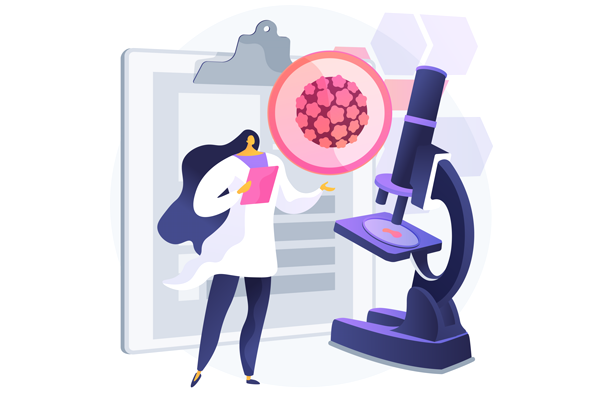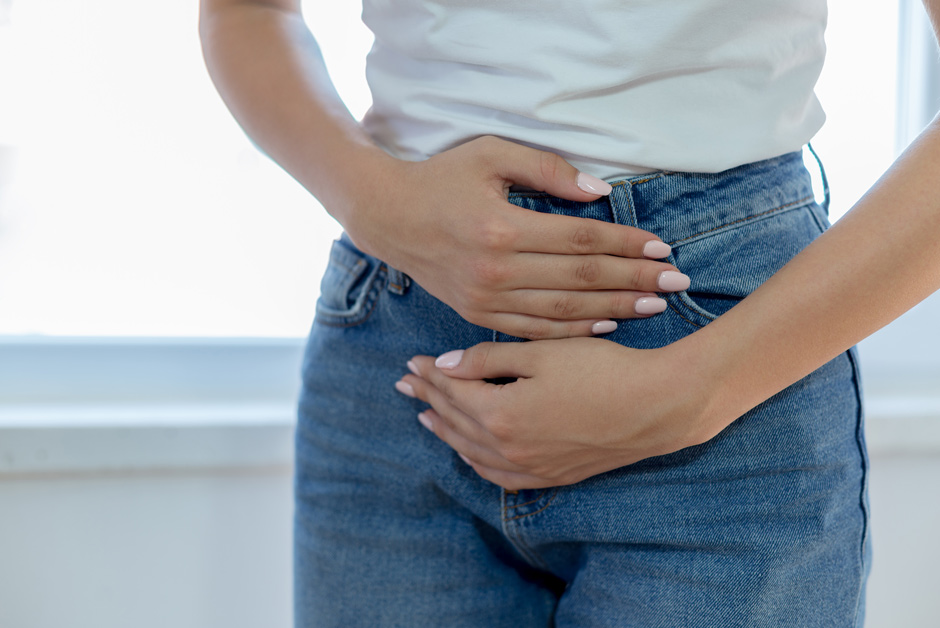Endometriosis and ovarian cancer are two gynaecological diseases that share similar symptoms, and are difficult to diagnose. It was previously thought that the two conditions were not linked, despite being similar in nature and location in the body; however, a recent study has shown that endometriosis is genetically correlated with ovarian cancer.
Endometriosis is a benign condition that affects around 1 in 10 women in the UK, while ovarian cancer is the sixth most common cancer in women, with approximately 7,500 new cases diagnosed in the UK each year.
In light of Ovarian Cancer Awareness Day, we explore the link between endometriosis and ovarian cancer, possible causes, and what you can do if you are worried about endometriosis increasing your cancer risk.
Am I more at risk of ovarian cancer if I have endometriosis?
A new study by the University of Queensland has identified that those with genes that predispose them to endometriosis are 2.6 times more likely to develop ovarian cancer.
In the genomes of 15,000 women with endometriosis and 25,000 with ovarian cancer, the researchers behind the study identified 28 genetic markers that contribute to the risk of both endometriosis and ovarian cancer.
The research identified that endometriosis was linked to three types of ovarian cancer:
- Clear cell ovarian cancer (CCOC) – an uncommon type of cancer that accounts for five to 10% of all diagnosed cases
- Endometrioid ovarian carcinoma (EnOC) – a unique ovarian cancer type that accounts for around 10% of all diagnosed cases
- To a lesser extent, high grade serous ovarian cancer (HGSOC) – an aggressive form of ovarian cancer with a high mortality rate (90%)
Dr A Aka, Consultant Gynaecologist at The Gynae Centre, explains, “The bottom line is that, if you are diagnosed with endometriosis, data shows that this puts you at a slightly higher risk for certain subtypes of ovarian cancer, but not the most common, which is epithelial ovarian cancer”.
How do I find out if I have endometriosis?
Endometriosis is a condition where endometrial tissue grows elsewhere in the body, usually around the gynaecological organs, but also in the gut, on blood vessels, around the lungs and on other organs. These tissue deposits function similar to the way that would inside the womb, building up and breaking down with your monthly menstrual cycle. Sometimes, this can cause symptoms including very painful periods, but many women have endometriosis without even knowing it.
Although awareness of the condition, its symptoms and its prevalence is increasing, some patients may find that their symptoms are dismissed as severe period pain and are prescribed painkillers as a result. Although it can be supposed that a patient has endometriosis from their symptoms and the ruling out of other similar conditions, the condition cannot be confirmed without a laparoscopy, which is a keyhole surgery that involves a camera inserted through a small incision in the abdomen to help identify any possible endometrial deposits.
A previous study identified that women with surgically diagnosed endometriosis were 1.7 times more likely to develop ovarian cancer, but identified that, due to the low number of confirmed cases of endometriosis and the rarity of the cancer, the increased risk could be higher in actuality. This has been confirmed by the University of Queensland’s recent study.
What to do if you have endometriosis and are worried about cancer
It’s important to note that the risk of ovarian cancer is only slightly higher for those with endometriosis. There is no significant risk, which means that your chances of contracting this already uncommon cancer are still low.
However, if you have been diagnosed with endometriosis, there are some things you can do to ease your mind:
- Consistently check for ovarian cancer symptoms – these include bloating, pain in your lower abdomen, changes in bowel habits, swelling of the legs, excessive tiredness.
- Attend regular check-ups with your gynaecologist – if you are concerned about specific symptoms, you should book a consultation with a gynaecology expert right away. However, whether or not symptoms are present, it’s recommended that you attend a regular health check-up, such as a Well Woman check, as well as regular smear tests.
- Make healthy lifestyle choices – it has been shown that smoking increases the risk of the mucinous subtype of ovarian cancer, but after stopping smoking for 20-30 years, the risk can decrease to that of someone who has never smoked. Continuing to make healthy choices such as quitting smoking can help to reduce the risk of cancers and other diseases.
If you are worried about endometriosis or ovarian cancer, and would like to talk to an expert, please do not hesitate to contact our friendly team to book a consultation. When it comes to your gynaecological health concerns, we’re here to support you and put your mind at ease.






